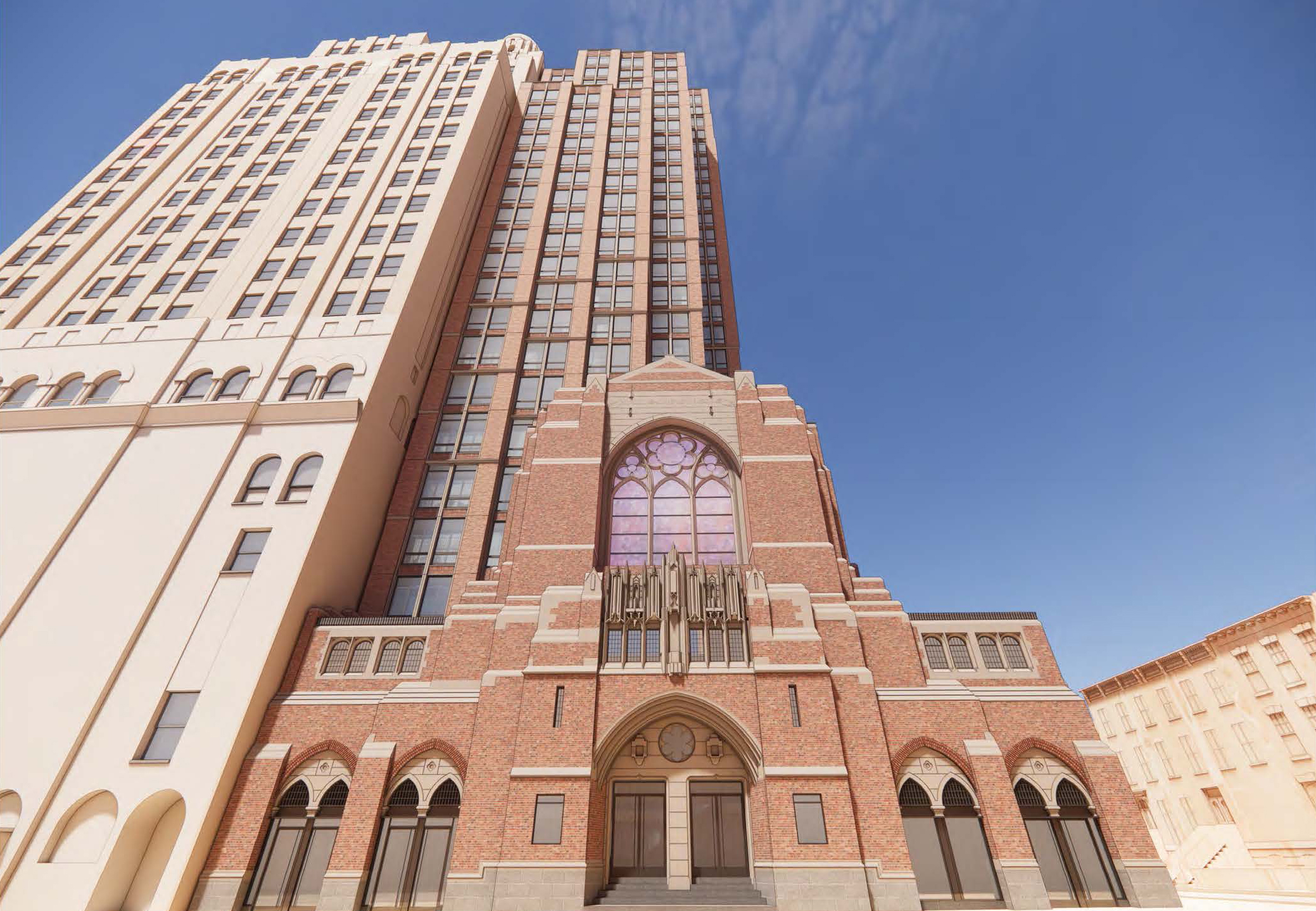How the Financial Crisis May Not Be So Bad for New York
We just got around to reading the cover story of the current issue of The Atlantic Monthly called How the Crash Will Reshape America. One of the article’s central points is that while hubs of intellectual and creative capital like New York will surely suffer in the economic crisis, they will suffer a lot less…


We just got around to reading the cover story of the current issue of The Atlantic Monthly called How the Crash Will Reshape America. One of the article’s central points is that while hubs of intellectual and creative capital like New York will surely suffer in the economic crisis, they will suffer a lot less than second-tier cities, the suburbs or industrial areas and therefore benefit on a relative basis. While there has been much hand-wringing about New York’s reliance upon the finance industry, many other smaller cities, it turns out, are much more reliant: Hartford, Des Moines and Charlotte, to name a few. Rather, New York is an incredibly diverse place which should be well-positioned to reinvent itself faster and more efficiently than other places:
New York is much, much more than a financial center…It is home to a diverse and innovative economy built around a broad range of creative industries, from media to design to arts and entertainment. It is home to high-tech companies like Bloomberg, and boasts a thriving Google outpost in its Chelsea neighborhood… New York is more of a mecca for fashion designers, musicians, film directors, artists, and—yes—psychiatrists than for financial professionals…The financial crisis may ultimately help New York by reenergizing its creative economy…Place still matters in the modern economy—and the competitive advantage of the world’s most successful city-regions seems to be growing, not shrinking…Talent-rich ecosystems are not easy to replicate, and to realize their full economic value, talented and ambitious people increasingly need to live within them…Economic crises tend to reinforce and accelerate the underlying, long-term trends within an economy [like the map of per capita patent creation above]… In this case, the economy is shifting away from manufacturing and toward idea-driven creative industries—and that, too, favors America’s talent-rich, fast-metabolizing places.
Sounds good so far, right? Here’s how the trends will play out on the American landscape, according to the author Richard Florida:
What will this geography look like? It will likely be sparser in the Midwest and also, ultimately, in those parts of the Southeast that are dependent on manufacturing. Its suburbs will be thinner and its houses, perhaps, smaller. Some of its southwestern cities will grow less quickly. Its great mega-regions will rise farther upward and extend farther outward. It will feature a lower rate of homeownership, and a more mobile population of renters. In short, it will be a more concentrated geography, one that allows more people to mix more freely and interact more efficiently in a discrete number of dense, innovative mega-regions and creative cities. Serendipitously, it will be a landscape suited to a world in which petroleum is no longer cheap by any measure. But most of all, it will be a landscape that can accommodate and accelerate invention, innovation, and creation—the activities in which the U.S. still holds a big competitive advantage.
Sounds like we’re sitting pretty, huh?
How the Crash Will Reshape America [The Atlantic]





parkedslope, keep dreamin’…
Awesome comments, parked. If you think about it it’s only been recently the nation as a whole shook off the industrial base that made the 20th century what it was, and gave NYC its peak years in the early ’50s (that can be quibbled about of course).
We are in the middle of rebirthing the economy into something totally different – something that started with the Internet age, not just this fiscal crisis. But b/c New York has always led, it will still lead or contend even when it’s coasting. It will take a lot – more than I foresee occurring – to cause our great long island story to grow tiresome.
Sometimes I feel like my head is going to explode reading these comments!
People, let’s get a few things straight:
-New York is different than Orlando, Miami, Tampa, Las Vegas, Phoenix, Orange County, et al. They are classic speculator/developer-specials: build it & they will come… the sheer cost-of-entry & prevalence of co-op housing has made NYC much less vulnerable to the problems other cities are experiencing. Also, our economy is surprisingly diverse, so the cratering on Wall Street is not a de facto death sentence for our housing market. And let’s not forget that those states which lack an income tax are in even worse trouble financially than us. Take the time & read George Packer’s excellent piece in the New Yorker:
http://www.newyorker.com/reporting/2009/02/09/090209fa_fact_packer
-That said, we are not immune: a sinking tide lowers all boats. NYC may have a sounder housing market & be ‘greener’ than most sprawling cities, but people who want to move here will have even less money to spend now that their property is worth so much less than before. That will eventually put a real downward pressure on our market. This also applies to the foreign buyers who’ve supported the high-end condo market in Manhattan.
-So yes, we are in the calm before the storm – the lag before the drop.
-Still, those who’ve been waiting on the sidelines, hoping to buy, have now seen their stock portfolios devalued & the era of easy money loans pass them by. So it’s unlikely they’re going to be a factor in any recovery or are going to get their hoped-for day in the sun.
-Which leaves the recovery mainly in the hands of us current owners: if we can avoid panic/pressure selling, if we can continue to pay our mortgages & taxes. I think this spells tougher times in established ‘hoods & de-gentrification in the fringes, new condos converted into dorm-like rental hives, and an end to most all new development. But it is absurd to indulge in fantasies of 1970’s-like decay in the city. Again, it’s apples-and-oranges… the social & economic pictures then-and-now are radically different.
-From here-on-out, our focus should be on how to manage the biggest opportunity that the slow-down offers: Federal money on-tap for infrastructure improvements. It’s up to us all to put real & immediate pressure on our elected officials to make lasting improvements to the city, so that when the turnaround comes, we’ll be proud of what we accomplished.
I think that’s what ‘The Atlantic’ article missed – the thing that attracts me to NYC most of all: the resilience of its people. Something we like to call ‘attitude.’ You can’t keep a good man down – or a great city.
I certainly think a huge drop in prices will be great for New York in the long-term and attract more creative people. But that doesn’t mean prices aren’t going to drop big first and that it might take 10 years to get back to the peak we have seen. Whereas, in quickly growing places where baby-boomers want to move to like Orlando, Atlanta, prices will recover faster.
For prices to recover you need BUYER DEMAND. How many of these creative professionals are buyers at all? They mostly rent. And those that want to buy are smart enough to know that prices will keep falling for years so why to buy?
Anyone predicting a bottom in anything this year is nuts. People need to recover their stock portfolios before they feel up to buying anything as well. These things take time..
11217:
Yes downtown Atlanta is oddly still a ghost-town but midtown and some other neighborhoods are pretty happening. But yes, Atlanta has a problem in that it has been urbanizing in a number of different spread apart neighborhoods and hasn’t reached the critical mass to connect all of them yet. Though the beltway light rail project they have been working on could be amazing if they ever get it done, could be an awesome urban city in some years.
Orlando is a much better example where everything is completely suburban and spreadout except for downtown/thornton park, which is getting to be fairly large walkable area and is beautiful, so the urbanization is concentrated.
Don’t know anything about Charlotte but saw on PBS they are making a big effort to urbanize with a beautiful light rail system, looks pretty nice.
doldrums: really don’t know what you are talking about, downtown Orlando is extremely lively at all times of day and night and growing, and the condos are mostly sold, not all turned to rentals like in nyc. Just that there is 1 huge unfinished eyesore building that is in permanent limbo because of Lou Pearlman’s arrest I think.
traditionalmod: as I said, almost everyone very interested in creative arts is already living in NYC.. or LA and always has been. This is a tiny % of people, not necessarily rich people, not a growing % of people, not enough to hold up real estate values in NYC. Additionally I do think that more and more creative people are staying in their home regions as they are becoming better, more urban, more cultured (thanks to the Internet in large part). Yes Atlanta and Orlando property values are in terrible shape but they have already corrected a large amount and are pretty flat now, and hence will recover before NYC, as everyone pretty much knows. Plus, outside of NYC there is a strong culture of homeownership, and people can actually afford a downpayment fairly easily, whereas NYC people are happy to stay renting while values drop and drop. The mortgage recovery plan is not going to be focused on jumbo loans and it is much harder to get a loan over 500k.
Not angry, just amazed at your ridiculousness.
ruh-roh, DIBS is angry
EPIC FAIL
whant whaa whaa….
I got something for you Squatter, and it isn’t water.
hey DIBS 11217 is calling, he wants his water back